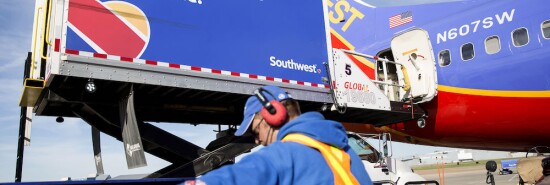
Outrageous: Southwest is giving free extra seats to obese people
Brad Polumbo
Video Embed
Did you know you can get an extra seat (or two) for free to spread out in the next time you fly Southwest? All you have to do is gain 200 pounds first.
TikTok influencers in the “body positivity” community are celebrating Southwest Airlines and calling attention to the airline’s “Customer of Size” policy. This policy informs overweight passengers that they can request a second seat for free or book additional seats in advance and get a refund afterward.
BIDEN BEAT TRUMP ‘CHAOS’ IN 2020 — NOW NIKKI HALEY WANTS TO DO THE SAME
“If it’s determined that a second (or third) seat is needed, you’ll be accommodated with a complimentary additional seat,” it reads. Why? Well, to “protect the comfort and safety of everyone onboard,” of course.
Some people even claim they have been kicked off Southwest flights for which they had tickets to make room for overweight passengers who needed extra seats.
https://twitter.com/itsmeseidy/status/1665894254877593600?s=20
It’s no shocker that “body-positive” influencers would like this policy.
“If you’re fat, you know the anxiety of flying, and this alleviates it a lot,” one popular TikToker said in a recent video. “I had a very comfortable flight, just feeling like I was allowed to take up the space I needed.”
But people who can fit into one airplane seat should actually find this policy outrageous. It’s fundamentally unfair and represents a company caving to fringe “woke” activism over its customers’ overall best interests.
Of course, overweight people should be treated with dignity and respect. It’s always wrong to bully or mistreat someone because of his or her appearance. Yet obesity is still not something that should entitle someone to special privileges at others’ expense.
If someone is too overweight to fit into one seat, airlines should require them to purchase two seats — not give them an extra seat or allow them to infringe on the space of their neighbors. This is not malicious discrimination. It is simply forcing people to accept the consequences of their own decisions, as, in almost all cases with rare medical exceptions, being so obese as not to fit in a single seat is a result of a person making very, very bad personal health choices.
It’s not fair to pass the costs of their decisions on to others. And rest assured, even if no one gets kicked off the flight to make room, giving obese people extra free seats will still come at other passengers’ expense in many cases.
There might be some half-empty flights for which overweight passengers could get an extra seat at no real consequence for their peers. But when a flight is nearly full, and an obese person books multiple seats in advance, ticket prices are going to go up and reflect the increased costs. As the economist Milton Friedman famously said, there’s no such thing as a free lunch or, in this case, a free seat.
CLICK HERE TO READ MORE FROM THE WASHINGTON EXAMINER
There’s also an unfairness element. What about all the other passengers — unusually tall people, for example — who would appreciate having two seats over which to sprawl out?
This entire approach to accommodating obesity is getting things entirely backward. With 300,000 Americans dying from obesity-related causes every year, we need to be actively focusing on how to help our fellow citizens lose weight and extend their lives — not bending over backward to accommodate their bad decisions at everyone else’s expense.
Brad Polumbo (@Brad_Polumbo) is an independent journalist, co-founder of BASEDPolitics, and Washington Examiner contributor.
